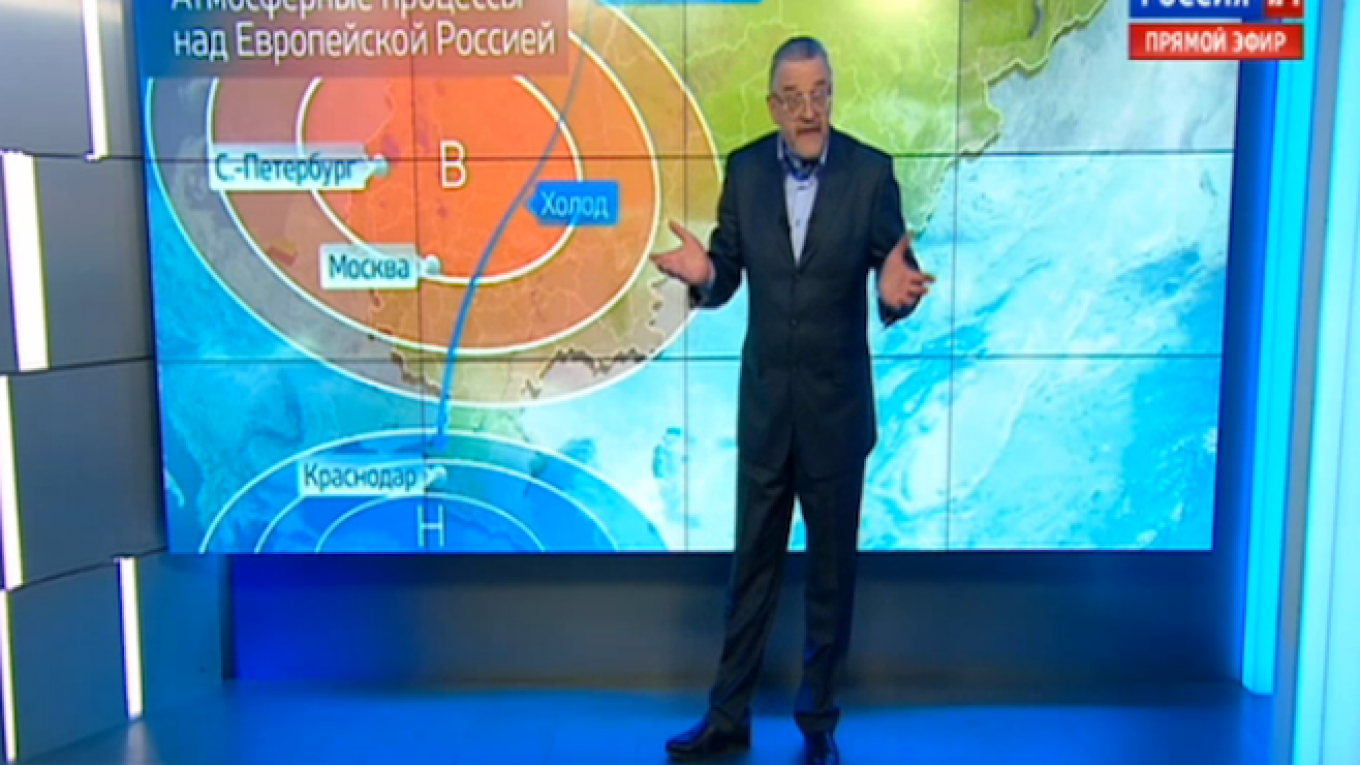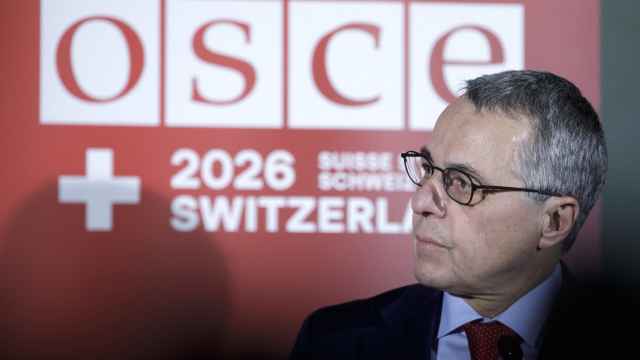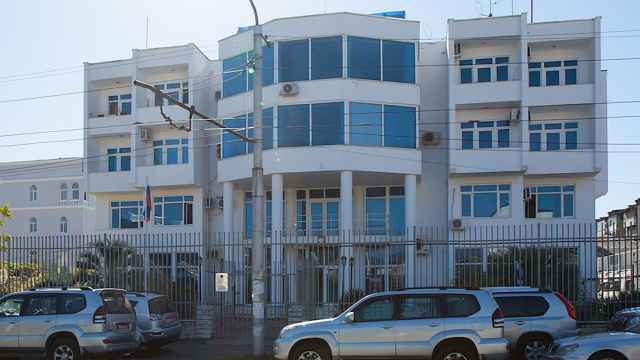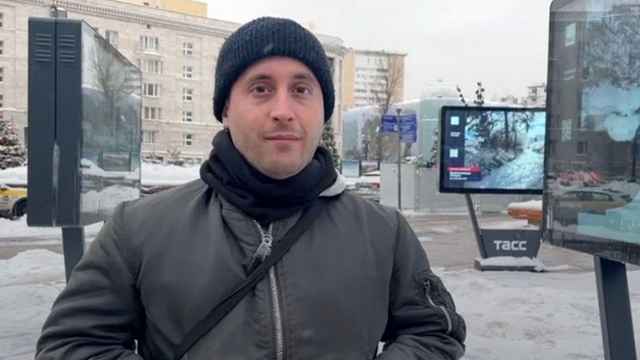In looking to the skies to predict weather conditions, Russia's most popular weatherman, Vadim Zavodchenkov, has realized that he can foresee both meteorological and political developments in Ukraine.
During his slot on state television channel Rossia on Monday, Zavodchenkov said "clouds have gathered over eastern Ukraine," and warned that its "effects would be felt in Russia."
Zavodchenkov said a cyclone from the Black Sea had caused "gusty wind, possibly the wind of change," in the Donetsk region.
"In the Donbass region, where the situation is strained to the limit, light rain is possible today and tomorrow. We don't know how much the confrontation will heat up, but the temperature on the thermometer in Donetsk will only rise," he said.
Clashes between pro-Russian militants and Ukrainian government forces have sharply escalated in eastern Ukraine, with getting under way in two towns in the region on Tuesday.
Zavodchenkov has used the weather to explain political developments in the country ever since protests broke out in Kiev in November, citing a that linked societal stability to changes in the global climate.
"Could there be a link between temperature levels shown on Kiev thermometers and the pressure levels" in Kiev?, the forecaster asked during a December forecast.
The protests against former Ukraine President Viktor Yanukovych began just as there was a sharp drop in temperatures at the end of November, Zavodchenkov said.
Zavodchenkov said protests on Kiev's Independence Square broke out the same day as the Orange Revolution in 2004, when "a heightening in political tension also coincided … with a change in seasons."
During the height of the protests on Independence Square, known as Maidan, winter temperatures were as low as minus 20 degrees Celsius.
A Message from The Moscow Times:
Dear readers,
We are facing unprecedented challenges. Russia's Prosecutor General's Office has designated The Moscow Times as an "undesirable" organization, criminalizing our work and putting our staff at risk of prosecution. This follows our earlier unjust labeling as a "foreign agent."
These actions are direct attempts to silence independent journalism in Russia. The authorities claim our work "discredits the decisions of the Russian leadership." We see things differently: we strive to provide accurate, unbiased reporting on Russia.
We, the journalists of The Moscow Times, refuse to be silenced. But to continue our work, we need your help.
Your support, no matter how small, makes a world of difference. If you can, please support us monthly starting from just $2. It's quick to set up, and every contribution makes a significant impact.
By supporting The Moscow Times, you're defending open, independent journalism in the face of repression. Thank you for standing with us.
Remind me later.






